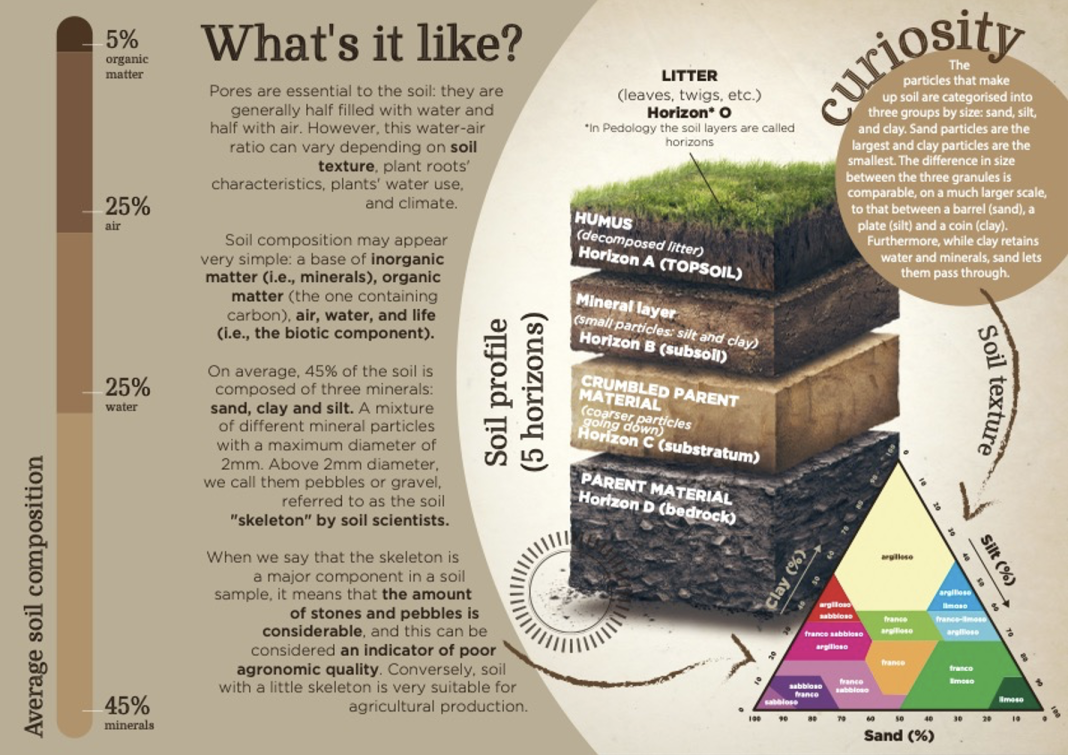The ECHO project approach in tackling soil health challenges through soil literacy and citizen engagement
The European Commission’s “A Soil Deal for Europe” Mission aims to address soil-related challenges by promoting soil regeneration and protection throughout Europe. This Mission emphasises the essential need for collective commitment and shared efforts while recognising soils’ complex and diverse nature, which presents unique challenges across different regions.
The Mission Soil outlines eight key objectives, each targeting a specific aspect of soil health, management, and sustainability. These objectives range from improving soil data to enhancing sustainable agriculture practices, ultimately contributing to climate resilience, biodiversity, and human well-being. Specific Objective #8 aims to enhance soil literacy by educating and engaging citizens, policymakers, and stakeholders to promote informed actions that support soil health and sustainable land use.
Citizen engagement is at the heart of ECHO’s mission, serving as a core pillar in driving collaborative scientific efforts and fostering widespread community involvement in soil health initiatives. However, before involving citizens, it is essential to enhance their knowledge of soil to foster critical thinking and sustainable management practices.
Educating people about soil’s characteristics and significance can encourage mindful and responsible actions in natural resource management, aligning with the central importance of “soil literacy” within the Mission’s objectives.
These objectives underscore the need for a diversified approach and comprehensive information. The diversity of soils throughout Europe highlights the importance of gaining an in-depth understanding of their distinct attributes, enabling targeted and effective action.
The vital role of citizen engagement
Citizen engagement is crucial in addressing soil-related challenges, especially within the framework of the Mission Soil initiative. Involving the public is essential, as soil protection and management decisions directly affect their lives. When individuals feel empowered in environmental decision- making processes, they are more likely to participate actively in efforts to maintain and restore soil health.
According to Pino et al. (2022), citizen participation is linked to greater environmental awareness and a stronger inclination towards adopting sustainable practices. This proactive citizen engagement can result in governance that is more effective, inclusive and capable of addressing society’s needs and aspirations more comprehensively.
Furthermore, it nurtures a greater sense of individual and collective responsibility towards sustainability and the welfare of both present and future generations. This involvement often leads to the adoption of responsible behaviours, thereby contributing significantly to conserving natural resources.
In summary, citizen engagement informs and involves citizens in environmental decision-making and stands as a fundamental pillar for ensuring sustainable and responsible management of natural resources. Encouraging active citizen participation in soil protection benefits the environment and cultivates a more aware and sustainability-oriented society.
The importance of educational materials in citizen engagement
Before involving citizens in soil protection initiatives, it is essential to develop educational materials tailored to the needs and characteristics of the target audience. These resources play a key role in the engagement process by providing the knowledge and practical tools for citizens to grasp soil-related challenges and adopt sustainable behaviours fully.
Customising these materials ensures they are accessible and relevant to different ages, education levels, and interests, fostering effective and meaningful engagement. Moreover, such resources encourage active participation and empower citizens, contributing to the responsible and mindful management of natural resources.
Soilab Kit
Re Soil Foundation, a partner of the ECHO project, has developed the Soilab Kit, specifically designed to actively engage primary and secondary school students in understanding and managing soil-related environmental issues.
In terms of education, Margenot et al. (2016) stated that “incorporating soil science into primary education is a fundamental step towards improving public understanding of the importance of soils to society.” The response from teachers and educators has been very positive, as there is a recognised need to include soil in educational programmes.
Innovative teaching methodologies could be pivotal in this regard, establishing shared guidelines, developing educational platforms, and offering immersive experiences such as hands-on field trips to observe the diversity of soils and their characteristics.
The Soilab Kit offers comprehensive information about soil through a diverse range of resources, covering its chemical composition, ecosystem services, and the threats it faces. Its modular structure includes a brochure, activity and laboratory sheets, post-game materials, and a teaching handbook. The handbook enables educators to adapt the content to their specific study programmes, fostering personalised educational paths.
Additionally, the Soilab Kit is written in accessible language, making it suitable for younger audiences to engage with soil science while maintaining scientific accuracy. Beyond basic soil information, the Soilab Kit delves into critical topics such as soil regeneration and protection, encouraging the development of critical thinking and responsible behaviour in natural resource management. Given the positive results of the Soilab Kit’s dissemination and use in schools, the ECHO project will adapt these educational materials for its specific needs, tailoring them to an adult target audience as well as high school students.
Soilab and citizen engagement: The numbers
The Soilab Kit’s success is clear: it has been downloaded by 6,500 teachers in about two years, reflecting significant interest from primary and secondary schools. This Soilab Kit has been instrumental in educating and raising awareness among young people about environmental issues and fostering responsible attitudes towards soil management. Now, as part of the ECHO citizen science project, a new version of the kit tailored for high schools and adults is in the making.
By broadening its reach, the ECHO Kit aims to empower a diverse range of individuals further to engage actively in sustainable soil management. Ultimately, this initiative seeks to create a more informed and environmentally responsible society, fostering a deeper understanding of soil management, safeguarding, and its importance for future generations.
References
- Margenot, A.J., Alldritt, K., Southard, S., O’Geen, A., O’Geen, A., 2016. Integrating soil science into primary school Curricula: students promote soil science education with. Soil Sci. Soc. Am. J. 80, 831-838. https://doi.org/10.2136/sssaj2016.03.0056.
- Vanessa Pino, Alex McBratney, Eugenia O’Brien, Kanika Singh, Liana Pozza, 2022. Citizen science & soil connectivity: Where are we? Soil Security, Volume 9, 2022, 100073, ISSN 2667-0062, https://doi.org/10.1016/j.soisec.2022.100073.


